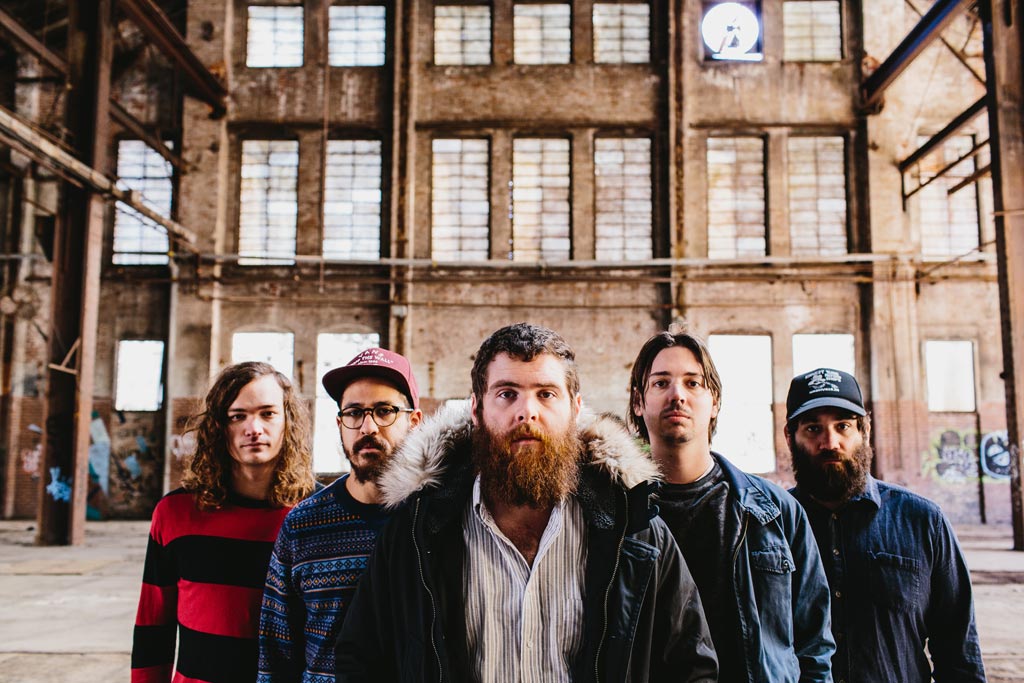BIO
Searching for the sonic direction of what would become their fourth full-length album, the hard-hitting COPE, earlier this year; Manchester Orchestra discovered something pretty amazing. The unapologetically heavy anthems seemed to work just as well (or even better) when stripped to their essence. “We were noticing that all the beautiful, slow stuff was working with all the really loud and fast stuff,” said lead vocalist, Andy Hull. “The seed was planted to go back and create a full circle of an album.”
So when Hull went into SiriusXM’s Alt-Nation studios and recorded a stripped-down version of “Top Notch” on the eve of releasing COPE this past April, it was with a measured degree of intent. The quiet presentation and simple arrangement forced the song’s warm lyric and beautiful melody to the fore, which actually made the track itself sound bigger. The fan reaction to the new version of “Top Notch” was powerful and instant (as was the great support from SiriusXM), further reinforcing the band’s desire to reshape these songs in a new and different way. Over the summer of 2026, in the same studio where they originally forged COPE; the band re-imagined the songs with a renewed sense of purpose and fresh perspective. Using Fender Rhodes, piano, vocal re-arrangements and strings, Manchester Orchestra, with an assist from illustrious sound mixer Phil Ek (Built To Spill, Beach House, Fleet Foxes), transformed COPE’s eleven tracks into something completely new and mesmerizing: HOPE.
“We were really proud of the stuff we were recording but Phil did an amazing job on the mixes,” Andy notes. “It was the perfect reverb on my voice – I’d never heard my vocals mixed that way.”
Although the track listing on HOPE is identical to its companion, Andy did shift the lyrics on a few tracks, exploring other aspects of the stories he’d told on COPE, hoping to invest the narratives with a fresh perspective. A string quartet recorded parts for several tracks at Red Bull Studios in Los Angeles and the band used those to create textural elements that build on the ethereal aesthetic of the songs. “Our goal was to be as sensitive as possible about not overcrowding the music, and letting it breathe and aiming for pretty,” Andy says. “We aimed for nasty and guttural stuff on COPE and this was more like, ‘How pretty can this be?’ I’ve always liked both sensibilities. This was an opportunity to see if we could sit down and do it for a whole album.”
Altering the arrangements and shapes of the songs also changed their meanings. Andy’s voice is at the forefront of this collection, particularly on “See It Again,” an a cappella song created with nearly 50 tracks of Andy’s vocals. It was nerve-wracking for the singer to highlight his voice so intensely but it also felt like the right time in the band’s career to focus on creating songs with that as the focus. “The lyrics hold a lot more weight on this version, even the same lyrics,” Andy says. “They’re presented differently so the lyrics hit a little harder. COPE was a guitar record – we wanted a lot and we wanted them loud. This puts an emphasis on my voice and puts it up front. I spent a lot of time making sure my performances were all there in the recording so I could feel confident in the vocal being so present.”
“Top Notch,” the surging, gritty rocker song that open COPE, becomes a surprisingly haunting ballad driven by a quiet piano line on HOPE, setting the tone for the songs that follow. The propulsive electric thump of “Girl Harbor” transforms into a shimmering indie rock number as Andy’s soaring voice pairs with slight acoustic guitar while the dynamic aggression of “The Ocean” is now filled with an evocative longing suddenly revealed in the brooding chorus as the heavy instrumentation falls away. The band removes the fuzzed out layers of sound on “Trees,” leaving only a quiet, emotionally affective melody behind, and pulls down the wall of electric guitars on “Every Stone” to showcase the raw power of its poetic lyricism.
The two albums exist both separately and together. Each is its own listening experience, with its own intent and stories. But placed adjacent, COPE and HOPE create a greater meaning, and reveal a musical and philosophical balance for the band. “This is completed with the two albums together,” Andy says. “The idea in writing COPE was to get the songs to be the best they could be as songs regardless of the style and instrumentation. That paid off when doing it the second time around. You realize that music can be dressed in a lot of different ways and in doing that it tells you something new.”


